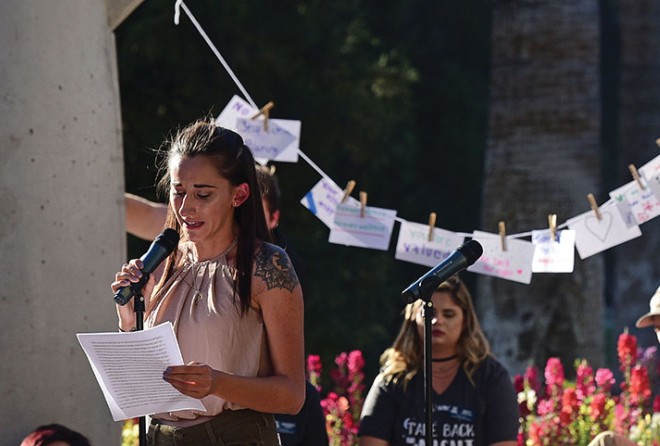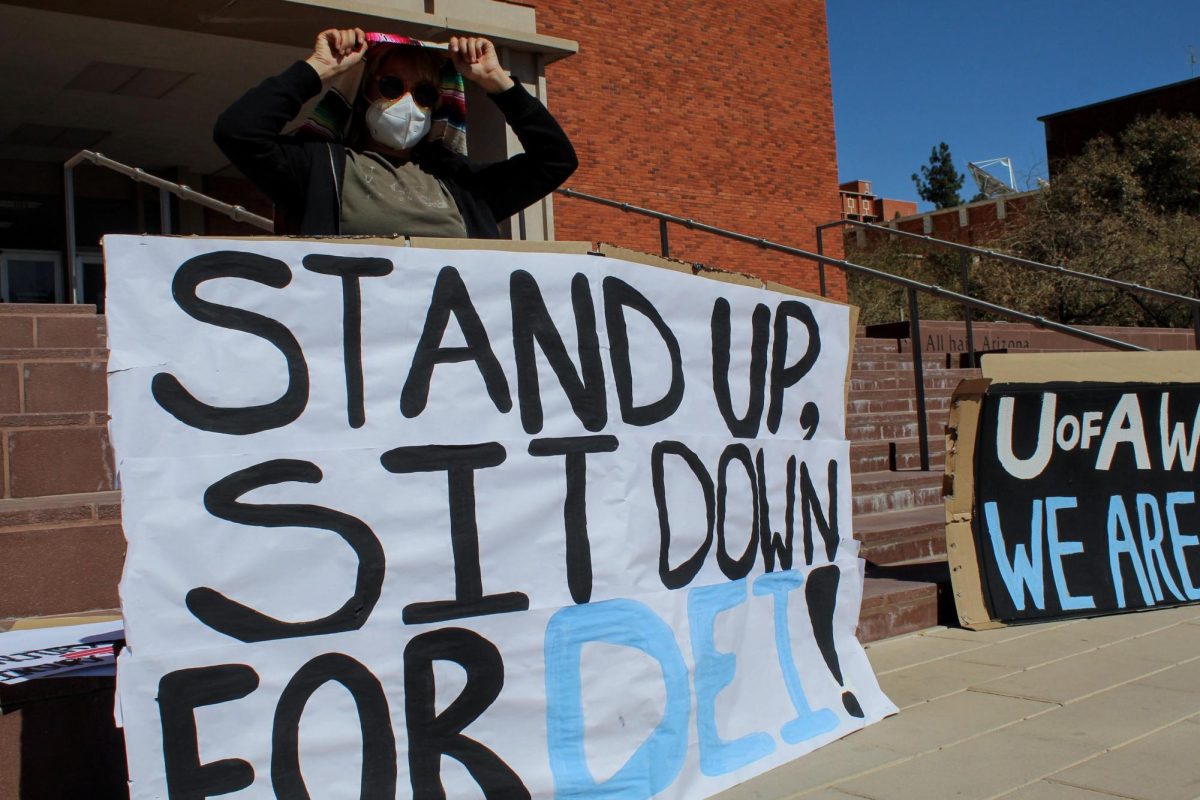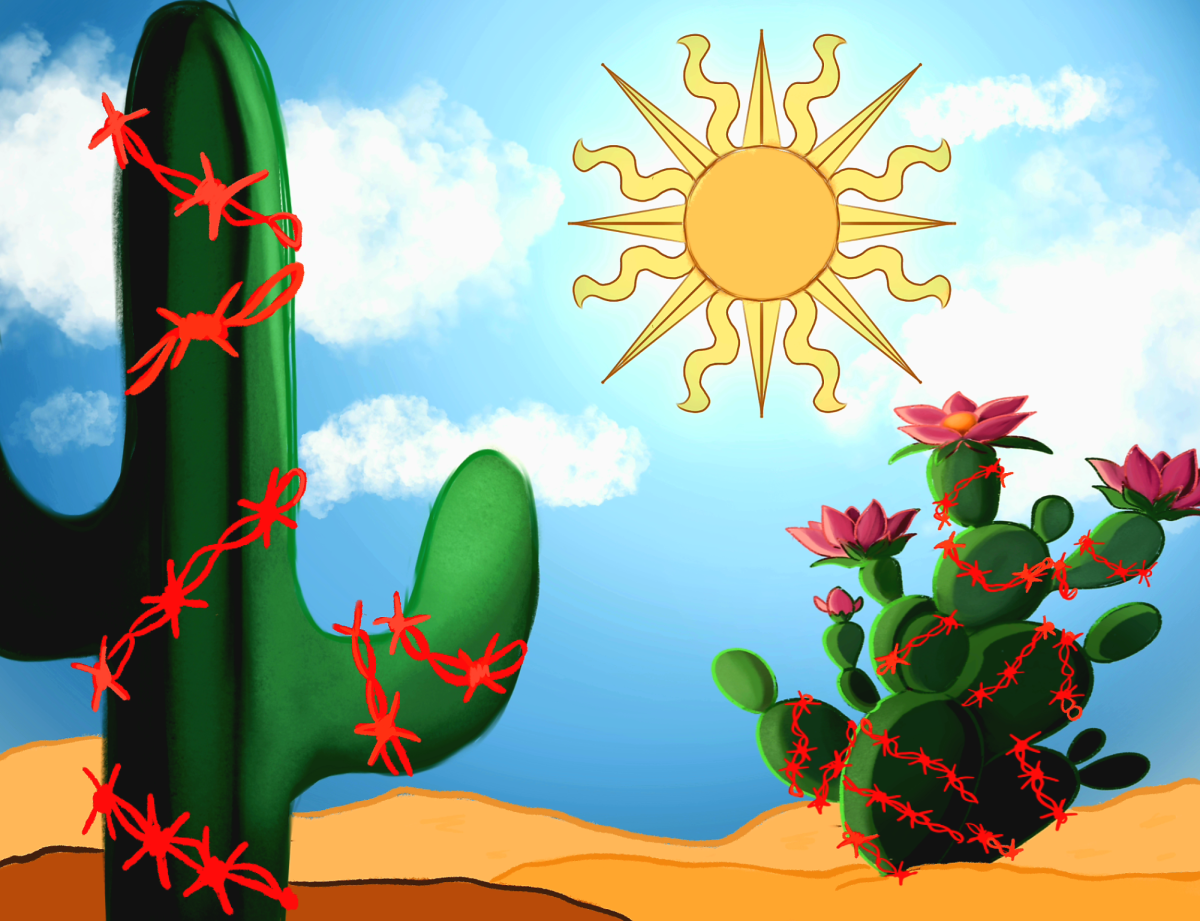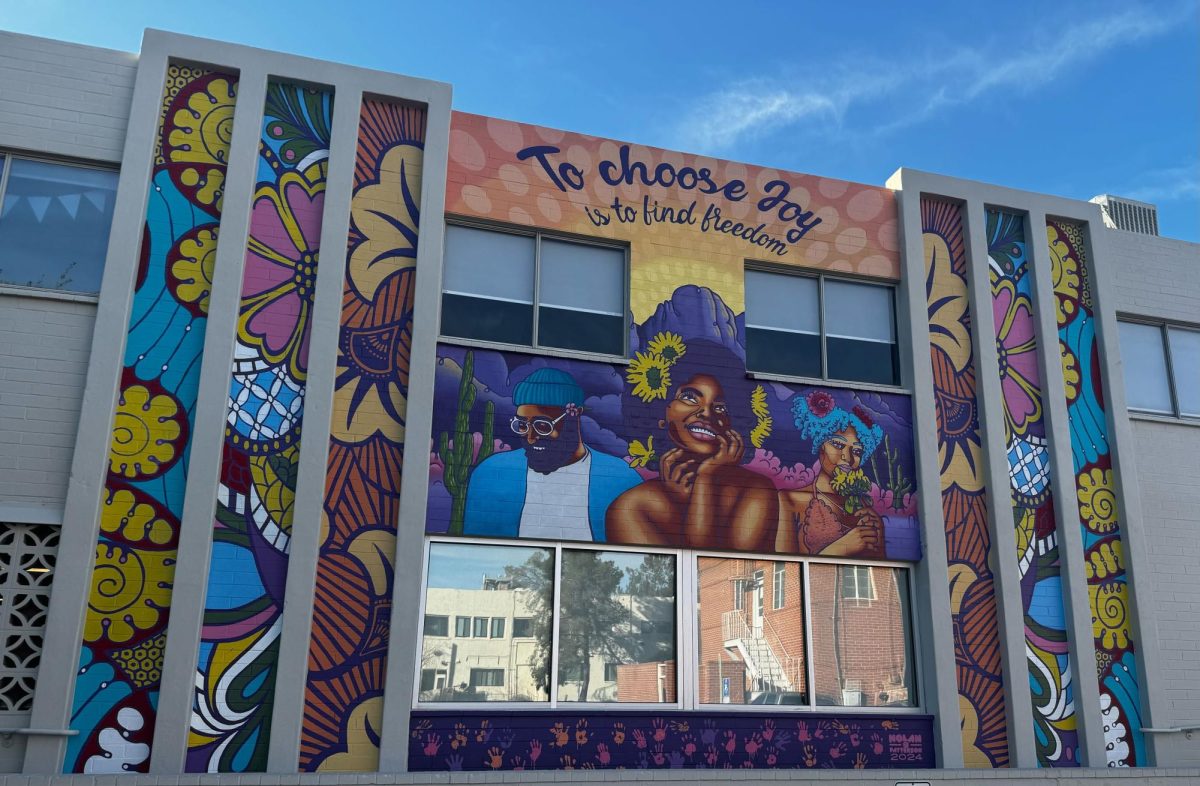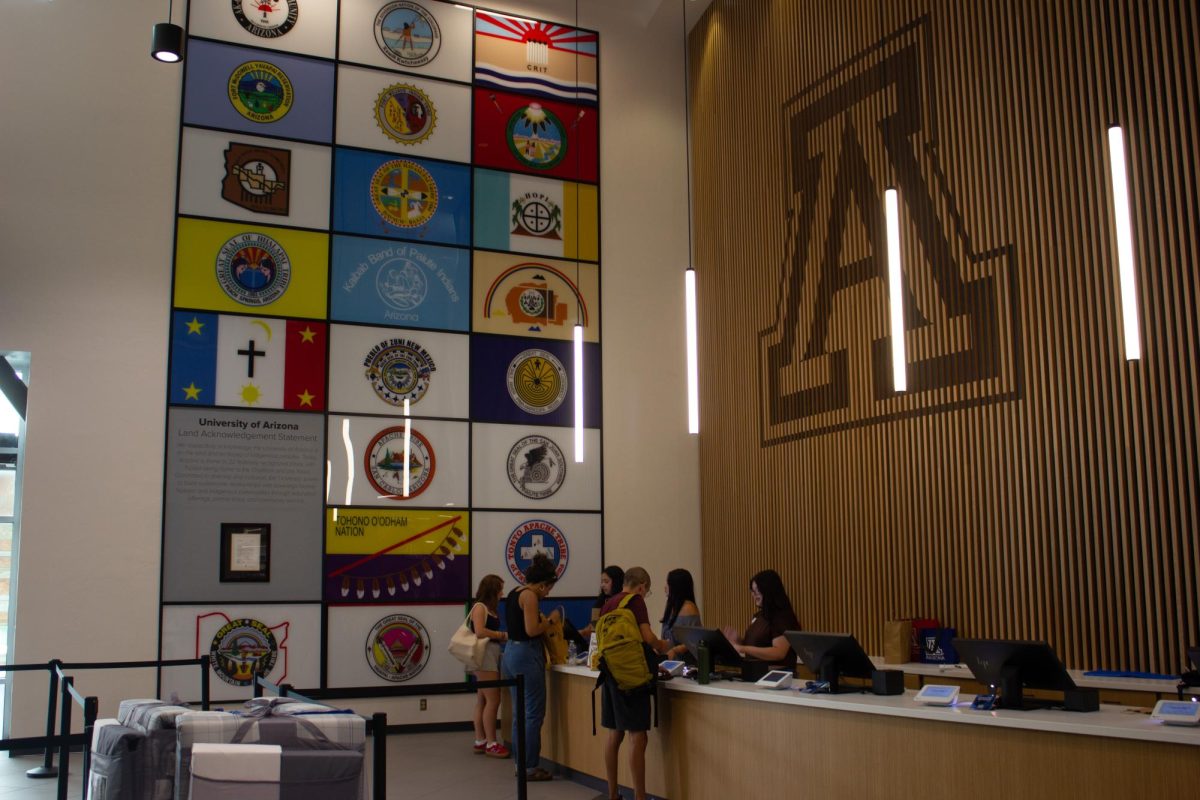As executive diversity director for the Associated Students of the University of Arizona, Kenzie Bevington, a law junior, was frequently approached by students running for office looking for support on their campaign.
Even before her involvement in ASUA, a student running for senate last year asked her to look over his platform. She agreed since he expressed an interest in getting involved in campus activism regardless of how the election went.
“I believed him when he said that he would help even if he didn’t get elected,” Bevington said. “He said this was something really important to him because he knew survivors in real life.”
The student approached Bevington shortly after she publicly acknowledged she was raped over social media. After the candidate lost the election, she never heard from him again.
It’s common for candidates to approach certain people to help verse themselves on an issues. Bevington said she was approached by three different presidential candidates.
“These student politicians are more focused on getting the vote than actually caring about why people vote that way,” Bevington said. “They want to put on a front that they care about those issues.”
Since last year, when the Marginalized Students of the University of Arizona released a list of demands, ASUA has turned its attention toward sexual assault as a popular new issue, but many students in the community feel that the attention has been insincere.
RELATED: SPEAC club hosts annual UA Take Back the Night to raise awareness of sexual assault
“There are some people who I have been approached by that genuinely do care about those issues,” Bevington said.
What ASUA has done in the past two years is organize the “I Will” campaign. The campaign hosts a series of events for a week in the spring aimed at sexual assault awareness.
The campaign has been spearheaded by ASUA vice president Tatum Hammond and co-directed by now-ASUA President Matt Lubisich. A large part of Lubisich’s campaign, as well as many ASUA candidates, has been geared toward “I Will”.
Lubisich said the aim of the “‘I Will’ campaign was to confront a ‘bigger’ overarching theme of rape culture on campus.”
“It’s something I wasn’t 100 percent aware of,” Lubisich said. “After talking to them I kind of really got enlightened, for lack of a better term.”
The “I Will” campaign has received criticism from a number of different students. This year’s campaign shrunk to seven events hosted over the week, down from 14 last year.
“I wanted to see ‘I Will’ grow,” said Lexy Reyelts, a public management sophomore and director for Advocates Coming Together. “[ASUA senators] used the ‘I Will’ campaign to give themselves credibility, but then I didn’t see any improvement this year.”
The campaign is organized via directors Hammond and Lubisich, who set up a board of directors made up of campus groups that sponsor events.
The board, along with Hammond and ASUA members, decided they wanted hold fewer events this year according to Lubisich.
“We obviously want to have as many events as possible but everyone said it was a lot of events,” Lubisich said. “So we cut it down, made sure it was about one event per day so we’re not overwhelming students.”

Many of the events had low participation Hammond said, making it hard to justify funding them.
Reyelts also raised concerns about the large police and administrator presence at the campaign. Last year, much of the event was hosted by the Women’s Resource Center, while this year’s sponsors expanded to include the University of Arizona Police Department.
“Having a large police presence or administrator presence is not fair to the students,” said Reyelts. “It’s part of rape culture, having this pressure to do these things but not addressing why these things happen.”
Reyelts decided to attend the “Know Your IX” event, which was a hosted during the same week as “I Will” by the Voices for Planned Parenthood club, or VOX.
The event was organized in the fall when VOX requested materials for the event from “Know Your IX”, a survivor focused organization. Naturally the event itself was focused on supporting survivors.
“It’s all just talk unless we have really critical discussions and supportive events too,” said Anna Keene, president of VOX.
Last year, the “I Will” campaign hosted several events focused on supporting survivors. This year, the campaign decided to omit a survivor space from the campaign to protect the identity of survivors.
“It was a really public space,” Hammond said. “I’m very passionate about this because making sure that space remains safe for those students is of the highest priority.”
RELATED: ASUA student government addresses UA student concerns
Not all students on campus agree with that decision. Keene expressed her concern with excluding survivors’ voices from the campaign.
“It was really disappointing that there weren’t more survivor-focused events,” Keene said. “We really need to center survivor’s voices during sexual assault awareness.”
Hammond said she directs any survivors in need of a space to talk with the Counseling and Psych Service, which handles these issues confidentially. CAPS offers two free counseling sessions for survivors, but then charges $25 per session after.
“The two free counseling sessions for survivors is not enough,” said Keene. “People can be afraid to even reach out to professional services.”
Keene and Bevington both claimed they tried to contact Hammond throughout the fall to put on the “Know Your IX” event as part of the campaign. Hammond said she was never contacted about the possible event.
The issue came down to poor communication according to Keene.
Lubisich contacted VOX about showing the film “Hunting Grounds,” a documentary about sexual assault on college campuses, a few weeks before the campaign. VOX requested the film and began planning the screening in August. After being contacted by Lubisich, ASUA organized the room and put on the event as part of the “I Will” campaign.
It is still unclear how the “I Will” campaign will proceed in the future, as well as any other sexual assault awareness events organized by ASUA.
“Were still in the piloting period,” Lubisich said. “Obviously we haven’t hit that sweet spot.”
Follow Steven Spooner on Twitter.



